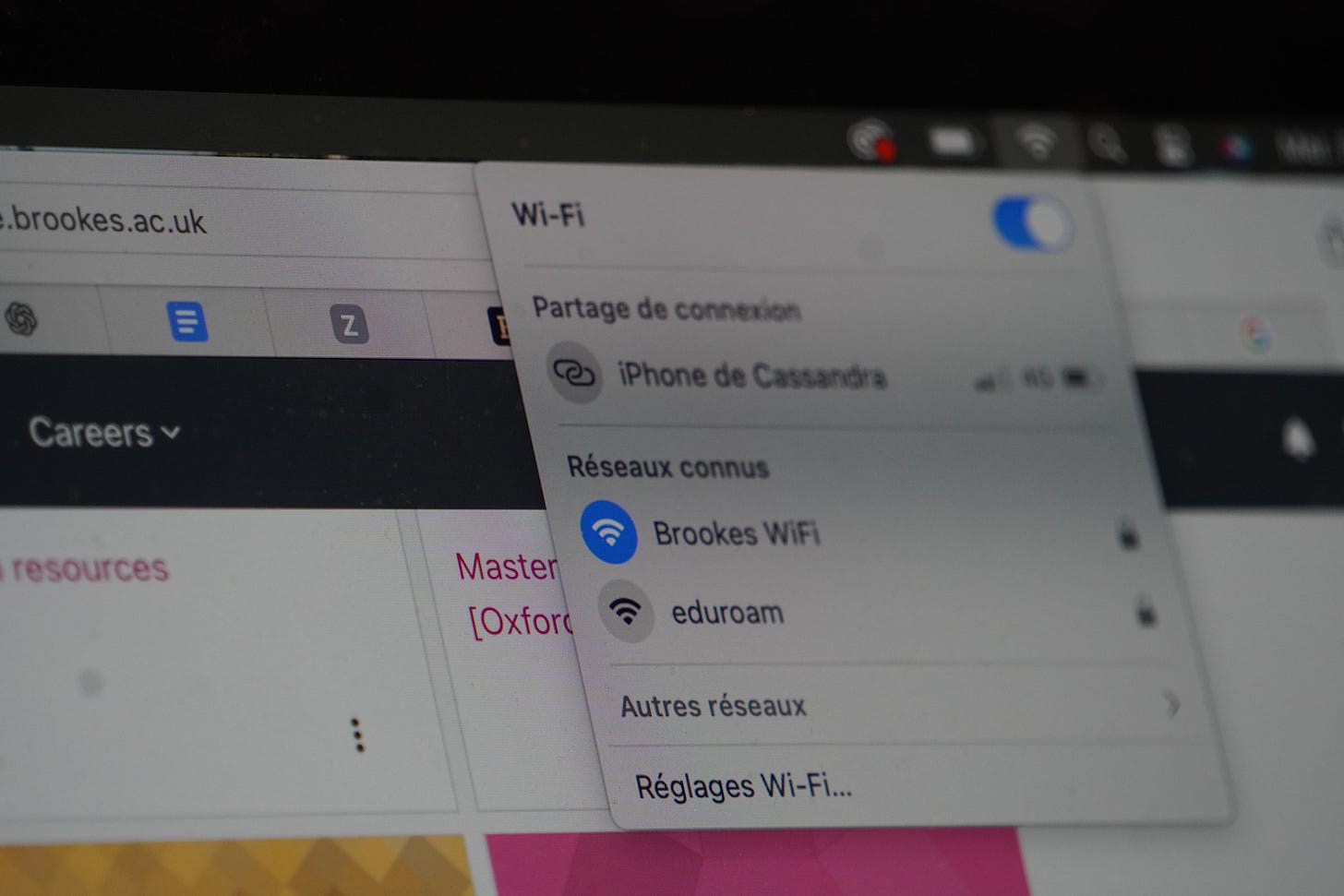Poor Wi-Fi has plagued students at Oxford Brookes. Now, the university is upgrading its network systems.
The project is underway and expected to be completed by the end of the 2026 summer term.
“We’ve had quite a lot of complaints,” said Kofi Owusu-Aidoo, the President of Brookes Union. “It’s become much tougher in recent years.”
He said Wi-Fi issues were by far the biggest tech-related concern for students and that the Union had brought it up in meetings with university representatives.
“I could make a drinking game out of how many times I have to reload my page.”
Some students are frustrated. “Wi-Fi sucks,” said Emily Winfield, a 23-year-old law student who was unable to get online at the time of interview on a recent afternoon in the JHBB.
“I could make a drinking game out of how many times I have to reload my page.”
Brookes is currently installing a new network on their Headington and Marston campuses, including next generation Wi-Fi.
According to the university, thousands of pieces of old network equipment are being replaced. 24km of fibre optic cables have been installed underground to outfit most buildings with two connections, for greater resilience.
“The new network will bring a greater level of security to assist with protecting the University from cyber attacks,” the university’s Chief Information Officer, Seamus Shaw, added.
He did not want to disclose the project’s price tag: “This figure is commercially sensitive.”
Some buildings have already been updated, including New Headington Hill, Clerici, Sinclair, Lloyd, and Buckley. Works on the John Henry Brookes Building (JHBB) are planned over the Christmas break and will cause some Wi-Fi downtime.
Wi-Fi speeds on campus vary
International relations student Murphey Pound, 28, described how Wi-Fi connectivity fluctuates starkly in his experience. “It really depends on the building,” he summarised.
Indeed, spot tests around the university’s Headington campus reveal that Eduroam Wi-Fi speeds vary greatly. Download speeds can be as low as 4.78 megabits per second on a weekday afternoon in the crowded Forum of the JHBB, measured using Ookia’s speedtest.net online tool.
According to Mr Owusu-Aidoo, that is also where most of the complaints to the Union come from.
Dr Kashinath Basu, a senior lecturer in computer science at Brookes, explained that one of the challenges in providing fast Wi-Fi to students is the high number of users that have to share the bandwidth of each access point.
The university has some 17,000 students.
Dr Basu added that walls and other barriers can also hinder connectivity. External factors that aren’t related to the Wi-Fi can also impact the user experience.
Contrary to the JHBB, the already upgraded Clerici Building impressed with download speeds of 146.20 megabits per second on a recent weekday afternoon.
“If we look at a typical requirement, we don’t need a very high bandwidth connection. Few tens of megabit is sufficient for the user,” said Dr Basu about a student’s Wi-Fi needs.
He said the network infrastructure needs replacing every couple of years, even in fairly new buildings like the JHBB.
How to get help
23-year-old law student Esther Drumm ran into Wi-Fi problems at the JHBB just before being interviewed. “I feel like there is an issue every time I study at uni.
“It’s so annoying, I literally want to go to someone and complain about it.”
Ms Drumm said she had never contacted IT support because it was too much of a hassle. She said her solution was usually to use her mobile data, or to simply go home.
Just like other tech-related problems, Wi-Fi issues can be reported to the Brookes IT Service, either in person at the help desk in the John Henry Brookes Building or on the online service portal.
IT services listed no official network problems within the last 90 days.
As general advice, the university recommends using Eduroam, which performs better than Brookes Wi-Fi and has more internet bandwidth assigned to it.




